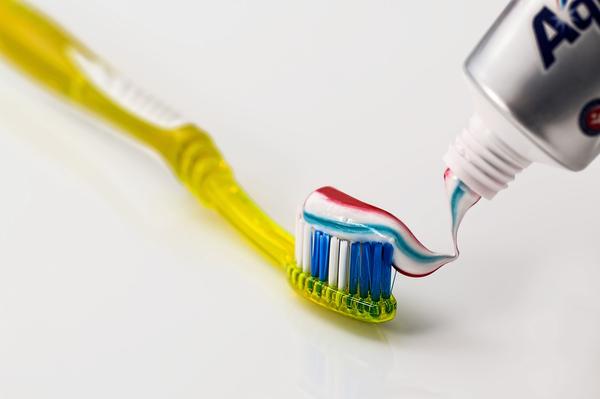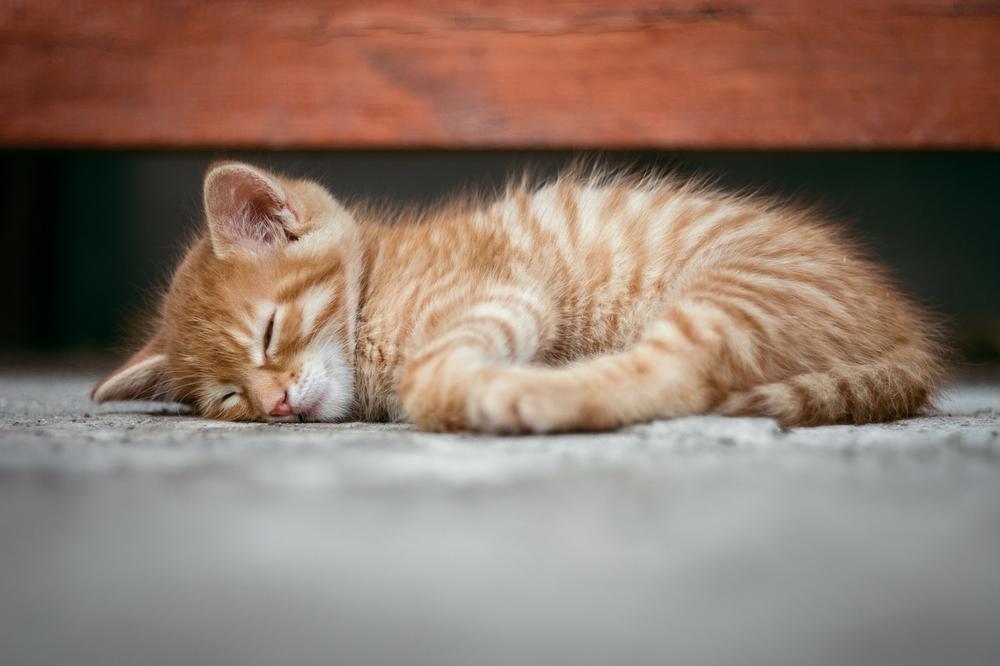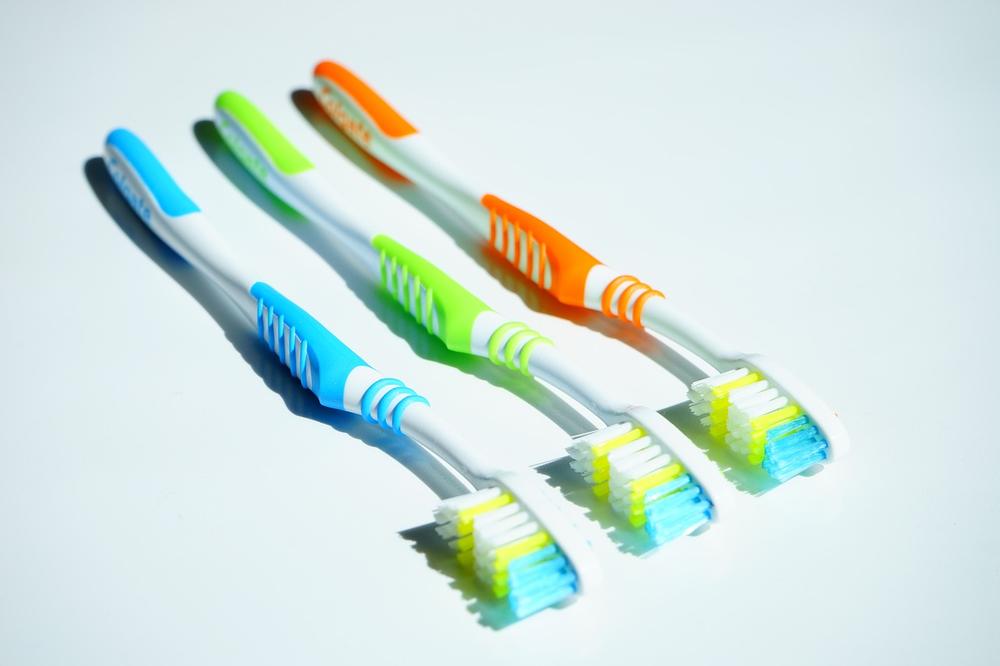How to Brush Your Cat's Teeth (Useful and Easy Guide)

Are you struggling to brush your cat's teeth?
I relate.
Cats are known for their INDEPENDENCE, making dental care a challenge.
But fear not! 😺
Together, we'll navigate the art of cat teeth brushing and ensure your furry friend's oral health.
Ready to transform that curiosity into action?
Let's explore how we can brush those pearly felines' teeth with ease.
Why You Should Brush Your Cat’s Teeth
Regularly brushing your cat's teeth is crucial for fresh breath and overall dental health. It prevents tartar buildup, gum disease, tooth decay, and reduces the need for invasive dental procedures. It's a win-win for your cat's well-being and your wallet.
Brushing your cat's teeth is an absolute must, my friend. Let me explain why.
First and foremost, if you want to avoid being repelled by your cat's bad breath, regular brushing is key. I mean, who in their right mind wants to snuggle up with a feline companion that has seriously stinky breath?
Not me, and I'm betting not you either!
But freshening their breath isn't the only reason brushing is essential.
It's also crucial for the overall dental health of your furry friend. Without consistent brushings, plaque can accumulate and harden into something truly unpleasant called tartar.
Trust me when I say, tartar is no picnic.
Allow tartar to set up camp in your cat's mouth, and it will pave the way for serious dental issues like gum disease and tooth decay.
And nobody wants their precious furball going through that kind of pain.
So what's the solution, you may be wondering?
Well, my friend, it's simple: daily dental care. By giving your cat's teeth a good brushing on the regular, you'll prevent the dreaded periodontal disease and keep those gums nice and healthy.

Let me tell you, having healthy gums is definitely cause for celebration.
It's like wagging your tail in pure joy because you know you're doing everything you can to ensure your cat's well-being.
But wait, there's more.
When you take a proactive approach to dental care, you actually lessen the likelihood of other medical conditions arising.
Talk about a win-win!
And here's another hidden gem for you:
By sticking to a routine dental care regimen, you'll minimize the need for invasive dental procedures down the line.
That means less stress for both you and your four-legged pal.
Plus, who doesn't want to save on vet bills?
So grab that trusty toothbrush and show your cat's pearly whites some tender love and care.
Believe me, they'll be forever grateful.
And you'll know you're doing your part to keep their teeth in tip-top shape!
Main points I'll expand upon further down this article:
- Daily brushing or at least three times a week is recommended.
- Start introducing toothbrushing when your cat is a kitten.
- Use a toothbrush specifically designed for cats or a soft brush for babies.
- Wear gloves and wash hands and toothbrush thoroughly after brushing.
- Replace the toothbrush every three months and use a different one for each cat.
- Pet toothpaste is safe for cats to swallow and they prefer the taste.
- Find a comfortable spot and create a routine for brushing.
- Use cat-specific toothpaste and toothbrushes, not human ones.
- Use alternative methods if your cat dislikes brushing.
- Regular professional teeth cleaning is important, and visit the vet for checkups.
How Often to Brush Your Cat’s Teeth
Here's how you can keep your cat's oral hygiene in great shape:
- Brush their teeth at least three times a week.
- Start when they are kittens to make it a regular thing.
- Gradually get them used to your touch around their mouth, teeth, and gums.
- Use toothpaste made for cats and a soft brush.
- Put some toothpaste on the brush and start with a few teeth.
- Work your way up to brushing all of their teeth.
- Be patient and gentle while brushing.
- Cats of any age can be slowly introduced to toothbrushing.
- For the best care, brush their teeth daily or twice a day.
- Stick to a routine and brush at the same time every day.
So, now that you know how often to brush your cat's teeth, let's explore some alternative options and additional tips to ensure their oral health.
Trust me, there's more than just one way to keep those pearly whites in tip-top shape!
What You’ll Need to Brush Your Cat’s Teeth
To effectively brush your cat's teeth, here's what you'll need:
- Get a toothbrush made especially for cats.
- Alternatively, dental wipes or finger brushes will do the trick.
- A soft brush designed for human babies works too.
- Your vet may recommend a specific toothbrush for your furry friend.
- Don't forget gloves to protect yourself from bacteria in their mouth.
- Have some hand soap handy for a thorough wash later on.
- Remember to replace your toothbrush every three months, just like yours.
- If you have multiple cats, consider getting different toothbrushes for each of them.
- Some cats hate the traditional brush, so try smaller ones if needed.
- Clean washcloths or squares of gauze can be used as alternatives.
- Choose pet toothpaste instead of using your own brand.
- Find a comfortable spot where you can sit your cat on your lap.
- Make sure you have easy access to their precious mouth. 😺
- Be cautious when using finger brushes; they can catch you off guard.
- Lastly, consider getting cat dental home care starter kits.
Your cat's teeth will be clean and healthy if you have all the necessary supplies prepared and follow these methods.
Pay attention, because here's the deal: Further down the blog post, I'll be discussing warning signs of cat teeth problems. So keep reading to ensure your furry friend's oral health is in good paws!
And with all the essential supplies in hand, you might be wondering what other alternatives exist to keep your cat's teeth clean and healthy.
Well, let me tell you about some innovative dental gels, water additives, and toothpaste options designed specifically for our feline companions!
Best Cat Dental Products
When it comes to keeping your cat's teeth clean and healthy, there are plenty of products that can help.

Here are some of the best cat dental products you should consider:
- Dental gels: These gels reduce plaque and tartar buildup. Just apply the gel to your cat's teeth or gums every day for the best results.
- Water additives: Adding a dental water additive to your cat's drinking water freshens their breath and fights against mouth bacteria.
- Cat-specific toothpaste: Never use human toothpaste on your cat. Get cat-specific toothpaste with tasty flavors like chicken or fish.
- Pet toothbrushes: Use toothbrushes made specially for cats or finger brushes to make brushing easier and more comfortable for both of you.
- Tasting the toothpaste: To make brushing pleasant, let your cat taste the toothpaste first. They'll be enticed by the flavors and more cooperative during brush time.
Regular dental care is essential for your cat's overall health.
So ensure to include these products in your cat's oral care routine.
Taking care of your cat's teeth has never been easier!
Alternative or Supplementary Home Care Techniques
Here's how you can keep your cat's teeth healthy at home:
- Get treats, toys, or chews that are good for their dental well-being.
- Help prevent plaque buildup by brushing their teeth regularly and using other techniques too.
- Teach your cat to accept toothbrushing slowly and patiently.
- Start by softly massaging their face, cheeks, and mouth with tuna water or chicken broth that has low sodium.
- Slowly introduce gentle rubbing along the gums with pet toothpaste.
- Let them get acquainted with a toothbrush beforehand, so they don't get scared.
- Keep a calm and positive atmosphere while brushing, and give them toys as rewards for good behavior.
- If brushing doesn't work, try using finger toothbrushes, gauze wrapped around your finger, or cotton swabs.
- Take it easy and go slow, spending about 30 seconds on each side of their teeth to avoid plaque and tartar.
- Remember to schedule regular vet check-ups to ensure your cat's dental health is in top shape.
That's all...
Simple ways to take care of your cat's teeth right at home.
Warning Signs of Cat Teeth Problems
Look out for these warning signs!
You need to keep an eye on your cat's teeth, just like you do with your own.
So watch out for any signs that indicate problems with your cat's teeth.
Because let's be honest, nobody wants their furry friend to suffer from dental issues, right?
Gingivitis: the early stages of trouble
Gingivitis is a fancy term that basically means inflammation of the gums.
And guess what?
It's a common problem in adult cats, affecting around 50-80% of them.
But don't worry, I've got your back.
If you notice your cat drooling and pawing at their mouth or if they're not as enthusiastic about dinner time as usual, it might be wise to take a closer look.
These could all be signs of gingivitis caused by plaque buildup.
Prevention isn't always enough
Now, we all know that prevention is key when it comes to maintaining good oral hygiene for our beloved pets. But here's the thing - sometimes, despite all our best efforts, cats still face dental problems.
And it's not their fault!
Factors like saliva, immune responses, bacteria, and other agents can make some cats more prone to dental issues, no matter how much brushing they get.
That's why you should stay vigilant and keep an eye out for any unusual behavior or changes in appetite.
But don't worry, with timely intervention, even severe cases can usually be managed through intensive home care or, in some cases, multiple teeth extractions.
Your cat's smile will thank you for taking care of it!
Professional Teeth Cleaning for Cats
Schedule regular professional dental cleanings for your cat to keep them healthy and safe.
It's important, especially if their gums and teeth are causing problems or pain. During these cleanings, veterinarians can tell you if a cleaning is necessary or not.
Most cats need comprehensive treatment under anesthesia by the time they're three due to mild-to-moderate dental disease. Even if you already have a dental care routine, it's recommended to visit the vet regularly for check-ups.
After a professional cleaning, ensure you give your cat time to heal before starting home dental care.
This will prevent any discomfort or complications. By getting professional teeth cleaning for your cat, you're ensuring their oral health and reducing the risk of dental diseases.
Combine it with proper at-home care to keep your furry friend's teeth shiny and healthy for years to come.
So, don't forget to prioritize your cat's dental health and schedule those regular cleanings with your trusted veterinarian!
And most importantly, if you're wondering about the cost of cat teeth cleaning, I highly recommend checking out my article Cat Teeth Cleaning Cost.
In it, I provide all the information you need to know about the expenses associated with professional teeth cleaning for your feline friend.
So, whether you're curious or concerned about the cost, make sure to click on the link and find out more.
And that wraps up today's article.
Before you leave, may I ask you something? Did my blog post help you out? If it did, I would be extremely grateful if you could share it with your loved ones. Sharing is as easy as clicking one of the social media icons. Thank you so much!
Talk soon,
-Sarah Davis